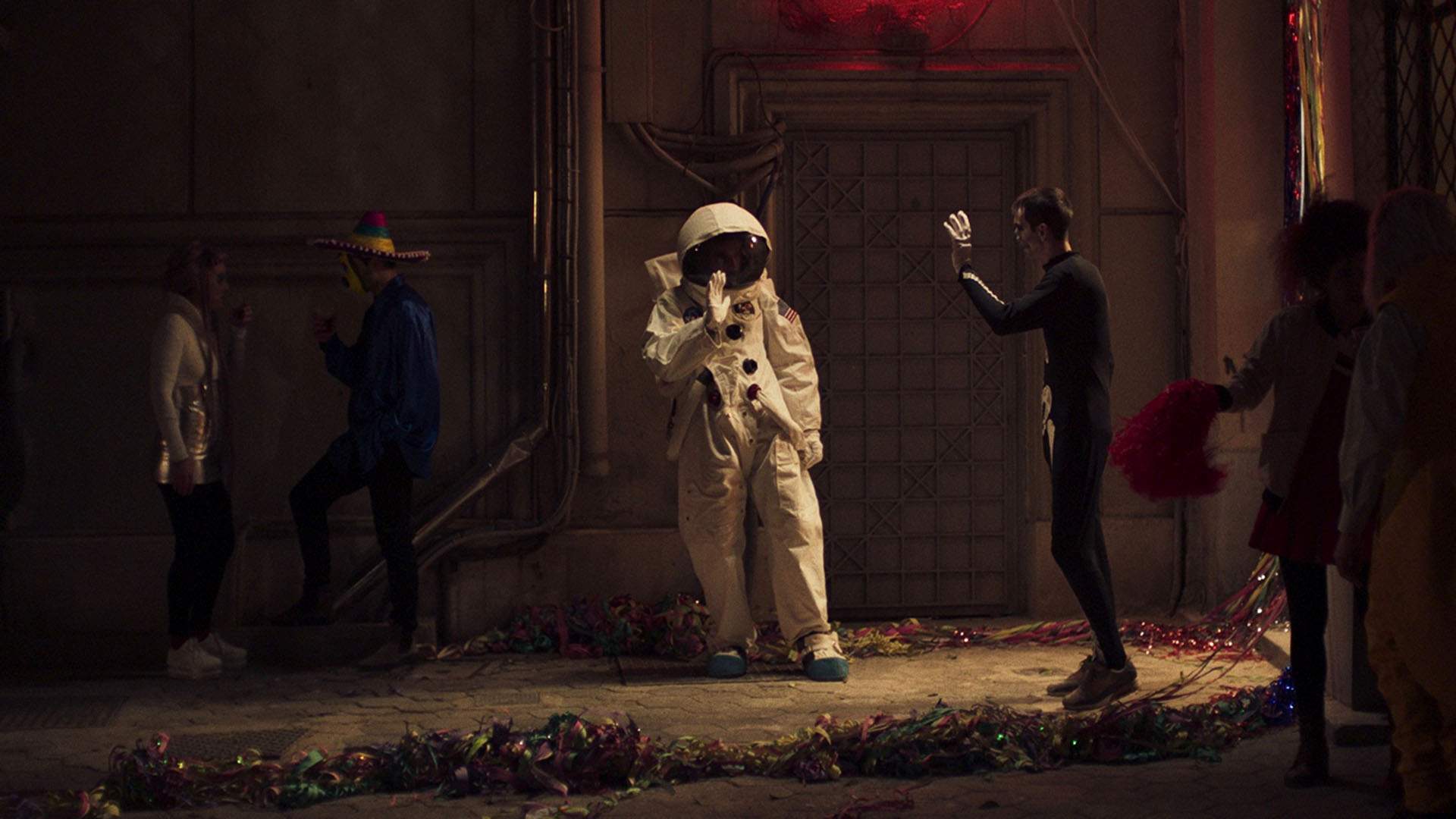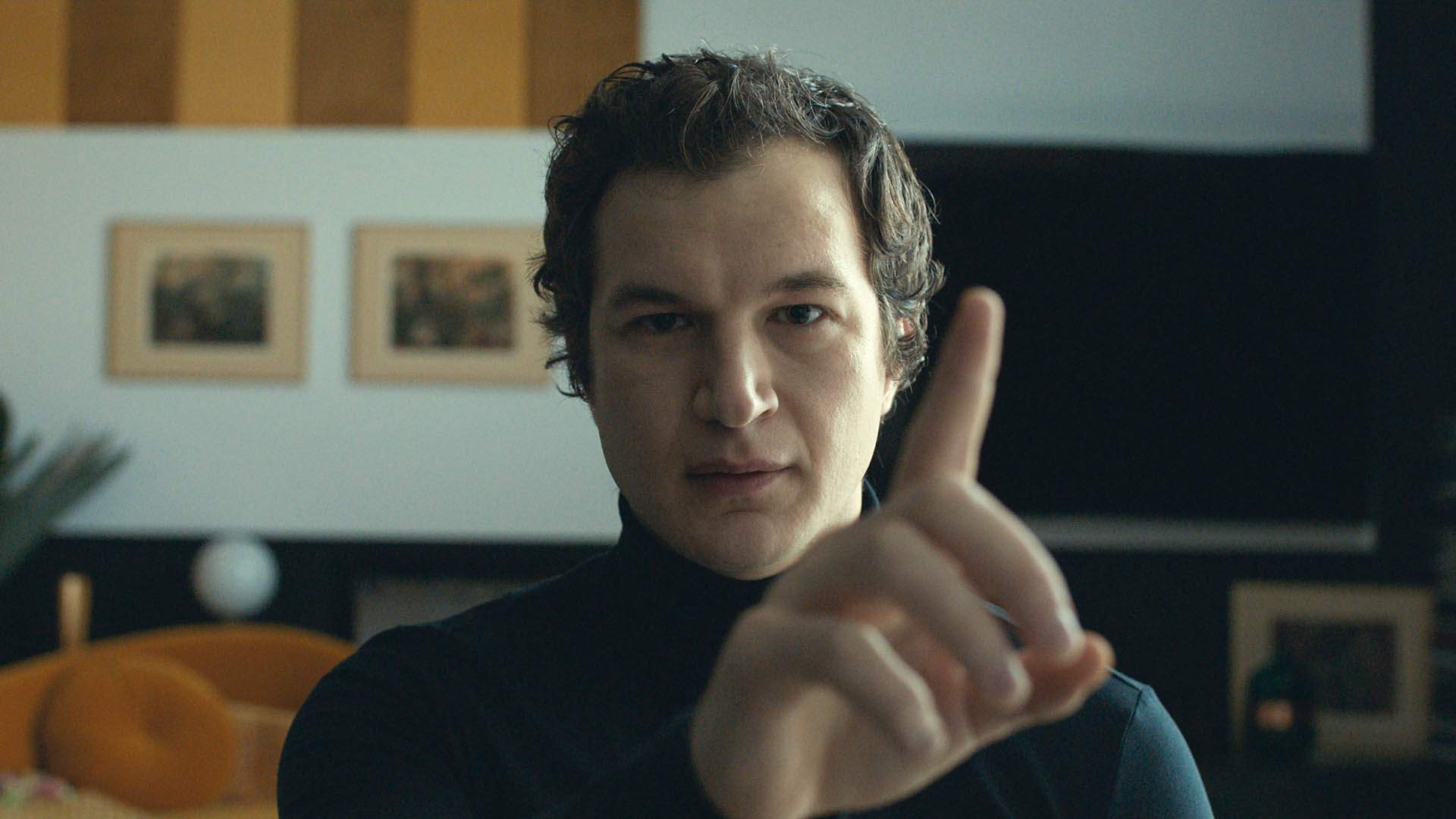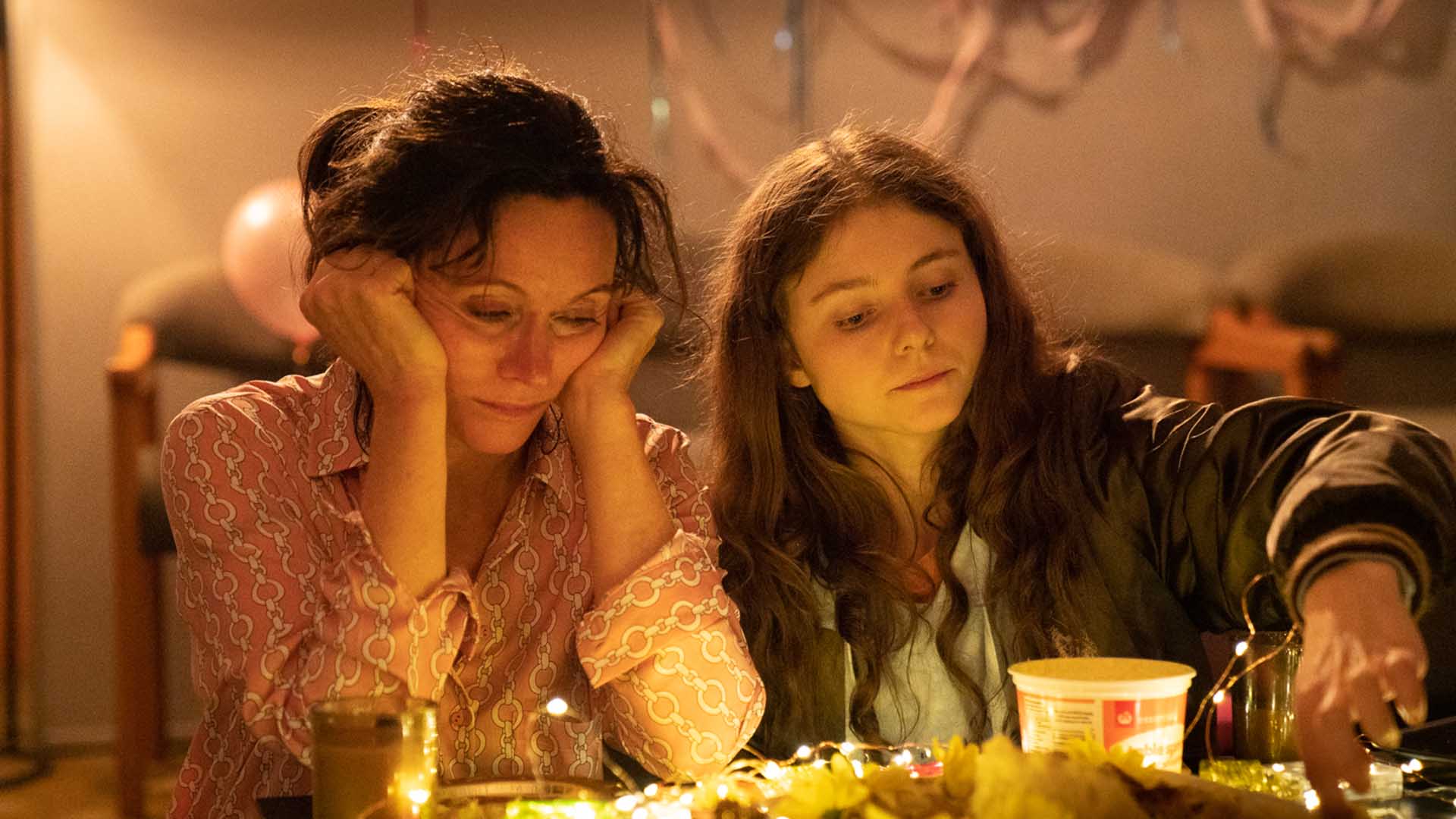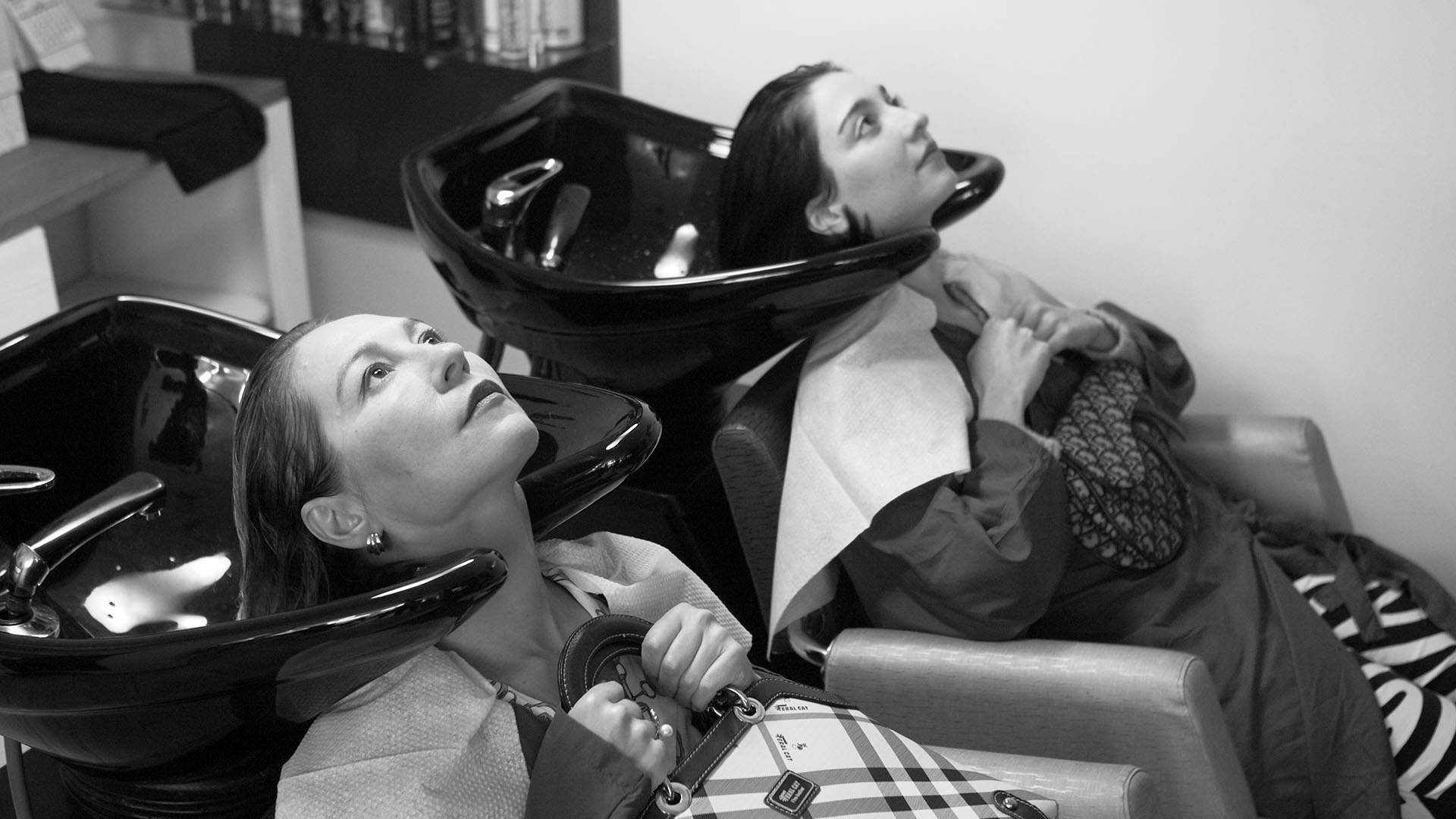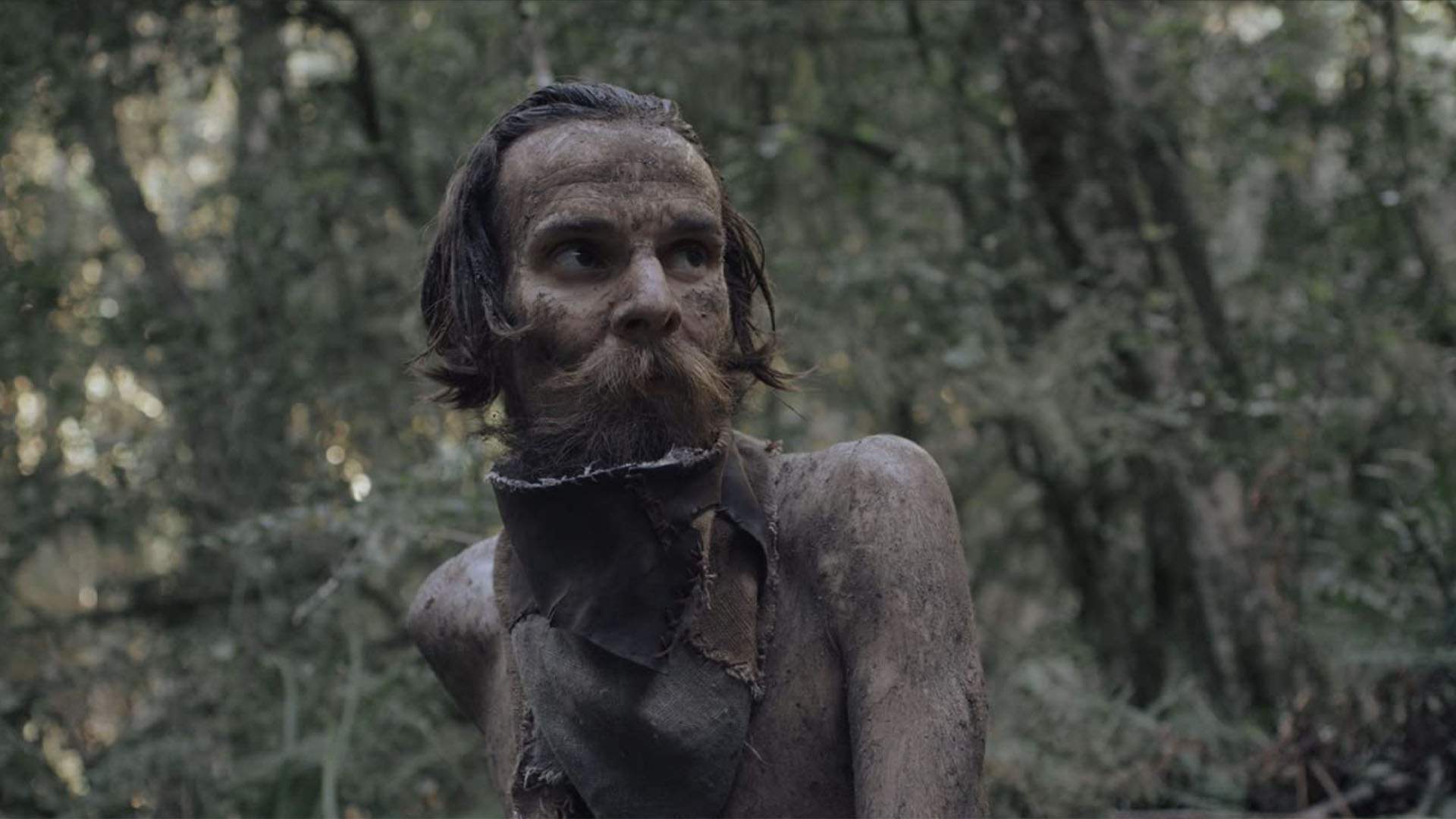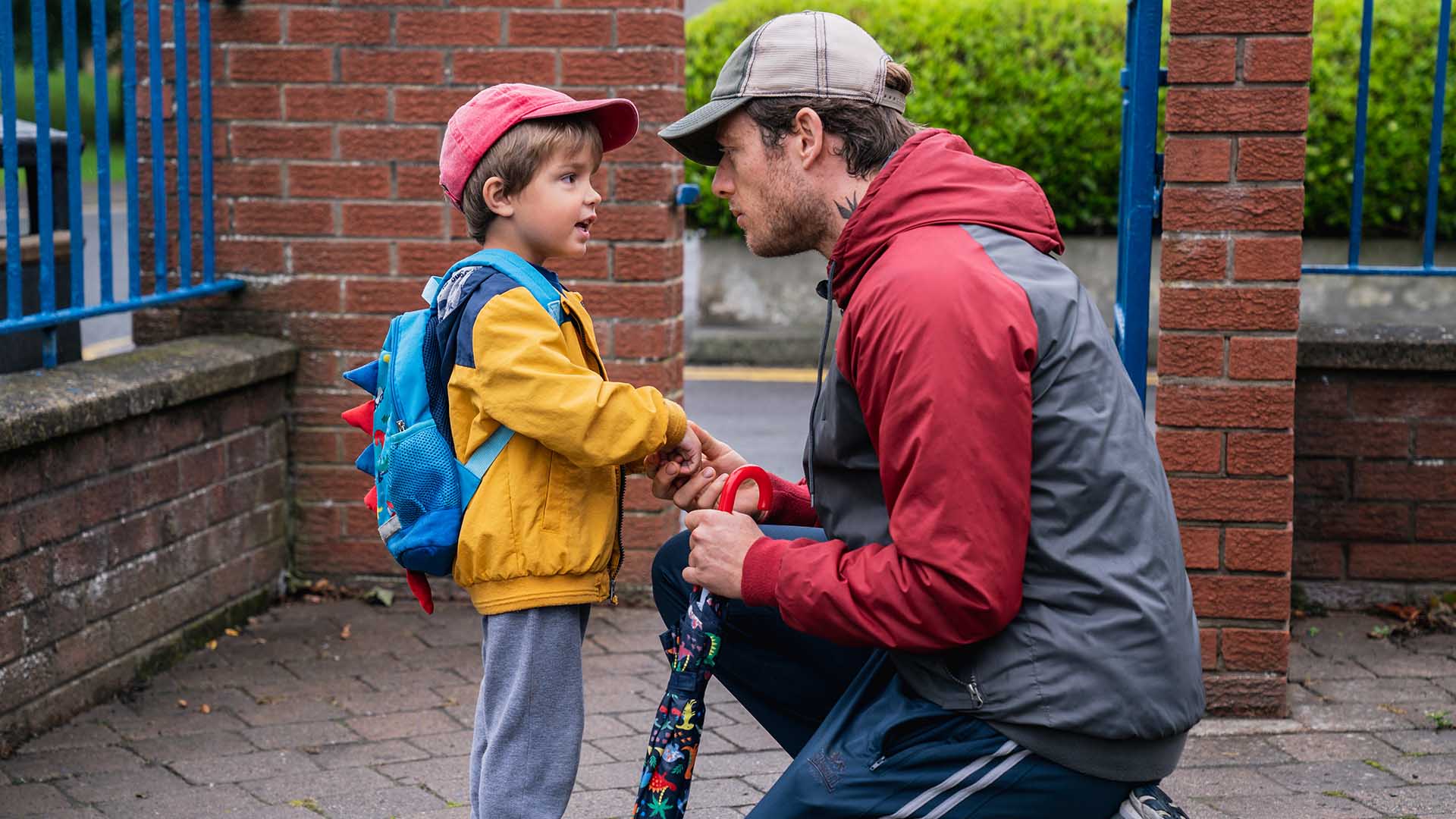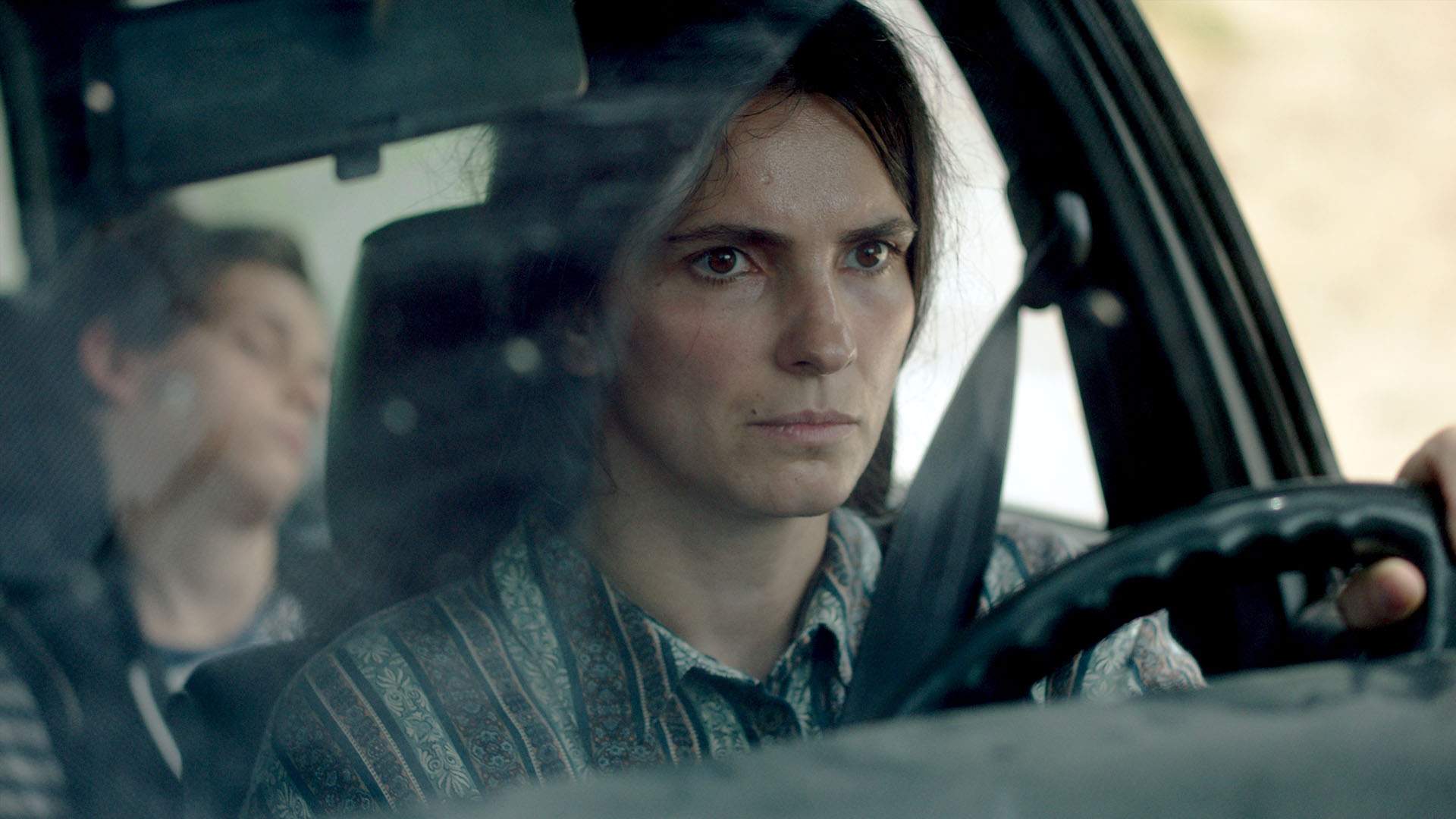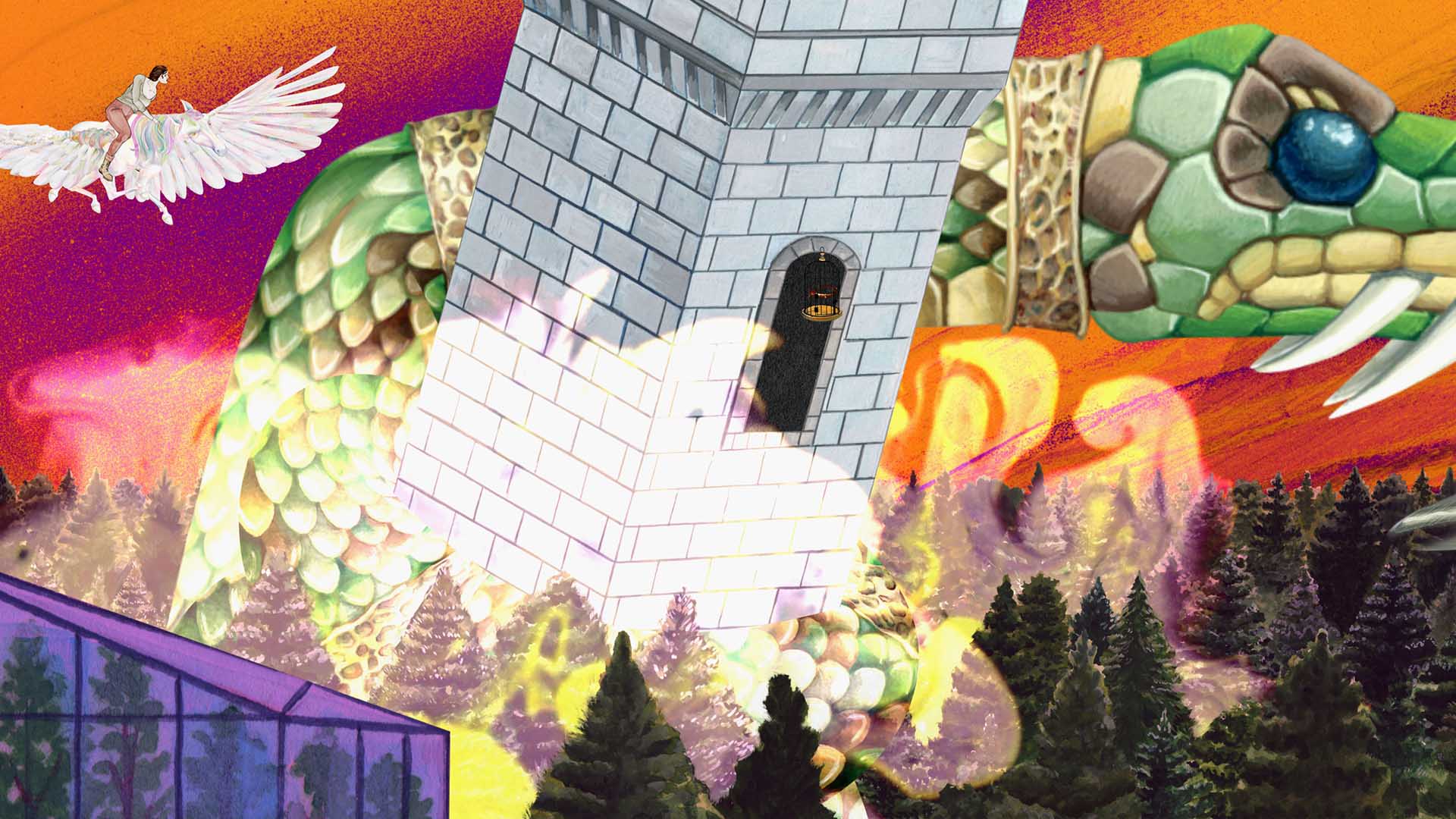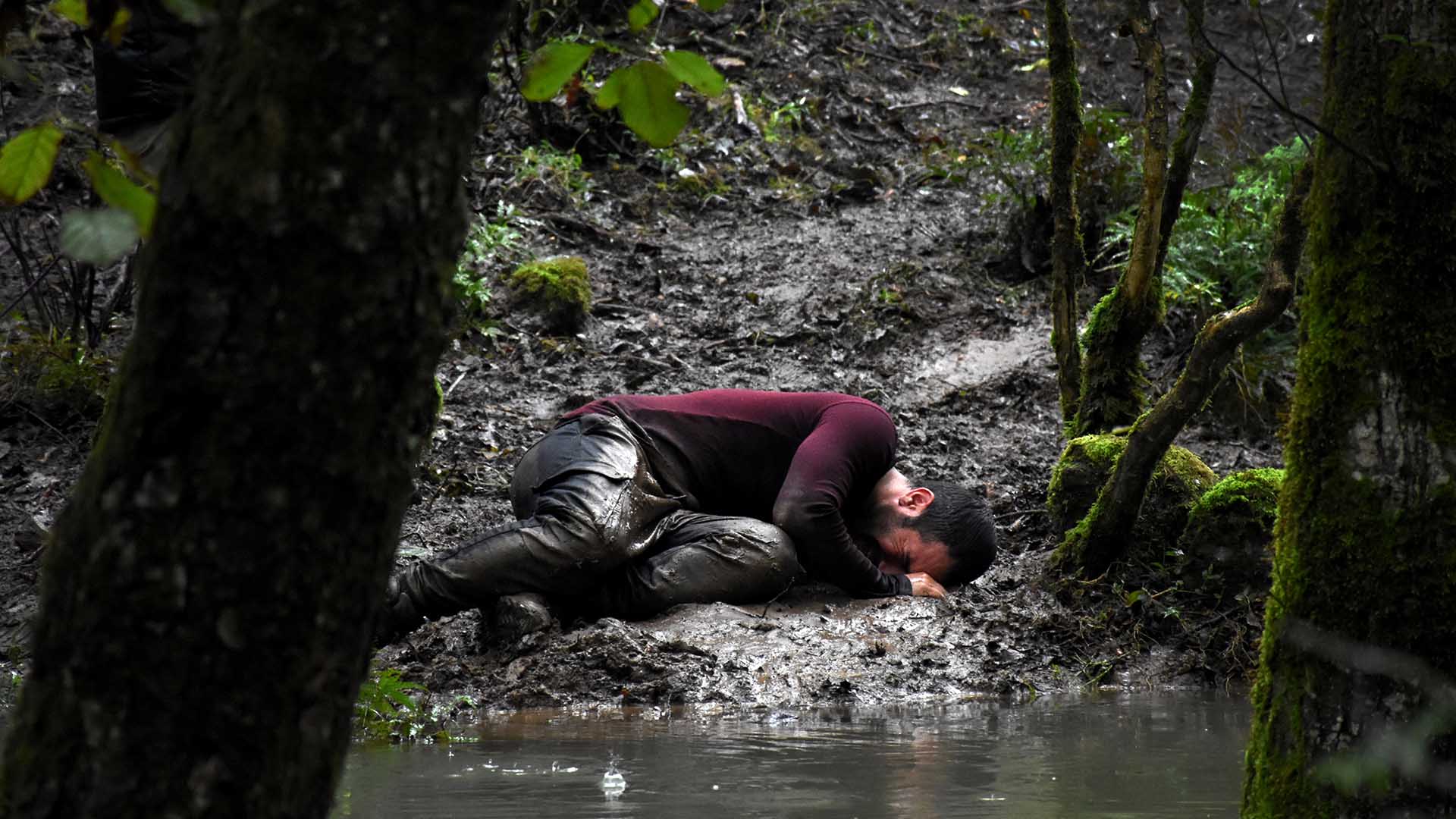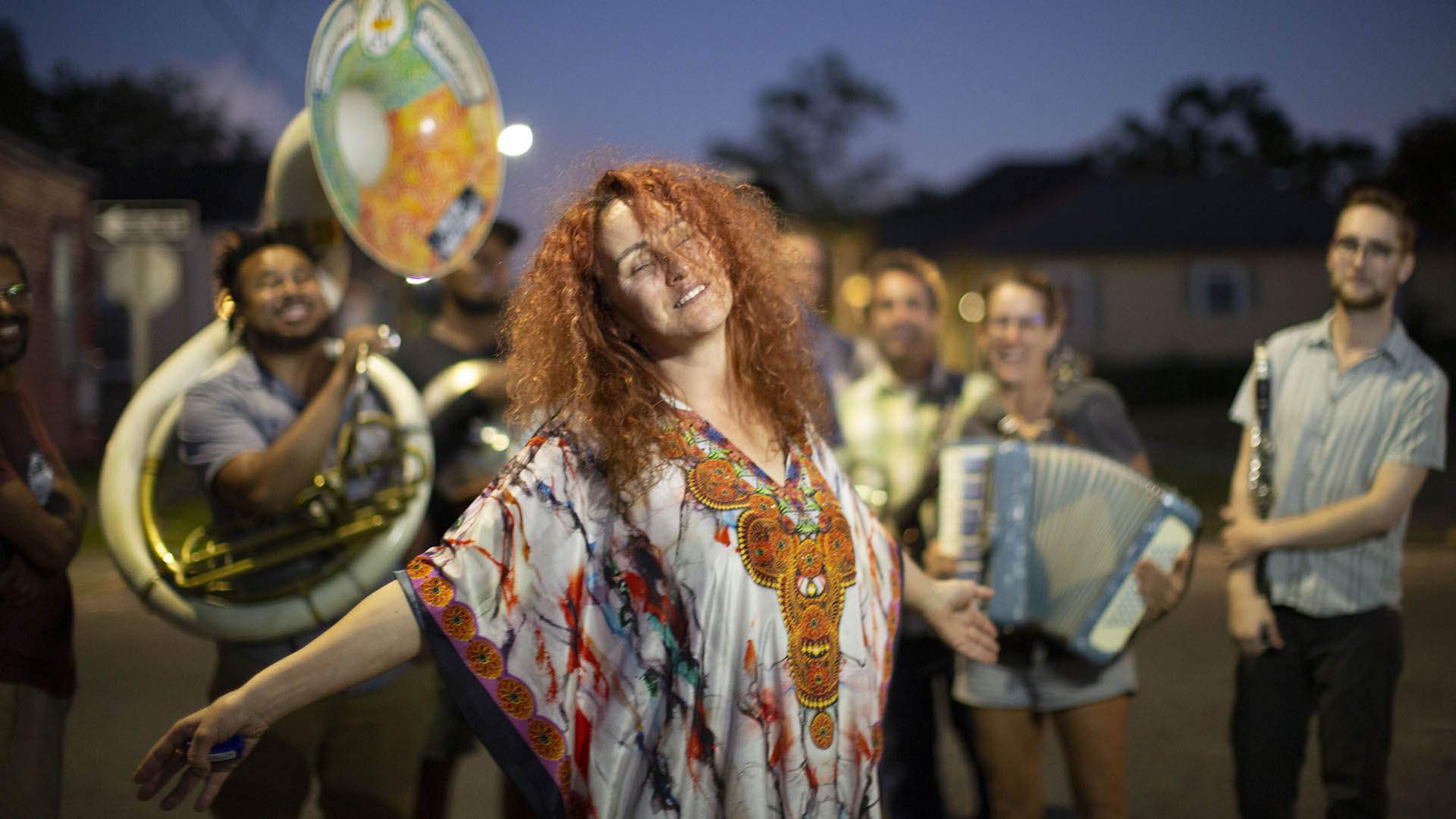Ten Must-See Movies to Stream During Sydney Film Festival's Online SFF On Demand Program
This year's Sydney Film Festival serves up two festivals in one — and its online program is filled with must-stream award-winners, trippy animation, eco-horror and moving dramas.
It happened — it really, finally happened. After being forced to move online in 2020 due to COVID-19, then having to push back its 2021 dates not once but twice for the same reason, the Sydney Film Festival returned to cinemas around the city this month for a 12-day big-screen run. If you're seeing a movie in Sydney, there's nothing quite like seeing it at the glorious State Theatre — or spending almost a fortnight camped out there doing nothing but watching films.
SFF hasn't forsaken the online realm, however. The pandemic turned attending film festivals into a virtual pursuit as well as a physical one, and Sydney's annual celebration of cinema is still keen to stream its wares. Enter SFF On Demand, the fest's digital offshoot for 2021, which is showing 56 feature-length films and 13 shorts between Friday, November 12–Sunday, November 21.
It's the SFF you can keep enjoying after the IRL festival has packed up its projectors for the year. It's also the SFF you can head to no matter where you're located in Australia, all without worrying about border restrictions and plane fares. The SFF On Demand lineup is jam-packed with must-sees, too, including our ten picks of the online program. Yes, first we watched, reviewed and recommended ten excellent films showing during SFF's physical run, and now we've done the same for its virtual lineup to help liven up your at-home viewing. You can even stream SFF's two big award-winners — and they're definitely on our list.

CRYPTOZOO
Throw a fantastical menagerie worth of mythical beasts into a kaleidoscope, plus copious amounts of hallucinogens. Then, sprinkle in some savvy cynicism about capitalism, corporations, the military-industrial complex and the 21st century's consumerism-driven ethos, as well as a savaging of xenophobic attitudes and a keen awareness of how humanity has been impacting the natural world. Next, shake vigorously. That's not how you make a movie, even one that splashes hand-drawn animation across the screen and is happy to look like it has been sketched and coloured in while under the influence, but it's easy to imagine that this is how Cryptozoo came together in all its mind-bending glory. A wild ride of a movie — and one aimed purely at adults — it's outlandish, ambitious, irreverent and entertaining all at once. It's also as smart as it is silly, and it's just as willing to make more than a few statements in more than a few ways.
In comic book artist-turned-writer/director Dash Shaw's (My Entire High School Sinking Into the Sea) psychedelic alternative version of our own universe, and of the 1960s, unicorns, pegasi, krakens, gorgons and other critters of legend all exist. The titular locale is home to many thanks to cryptozoologist Lauren Gray (Lake Bell, Medical Police) and her mentor Joan (Grace Zabriskie, Twin Peaks), but it also doubles as a theme park for humans to gawk at its rare inhabitants. Lauren is devoted to trying to protect the creatures, called cryptids; however, that's easier said than done when shadowy mercenaries are trying to capture the same beings. Some critters take humanoid forms and it's one, Phoebe (Angeliki Papoulia, The Lobster), who encourages Lauren to challenge everything that she believes — and both wondrous and astute chaos ensues.

HIVE
In Hive, to peer at Kosovo-born actor Yllka Gashi is to look deep into a battler's eyes. She plays Fahrije Hoti, a woman who has never been allowed to stop fighting, although the men in her patriarchal village would prefer that she'd simply attend to her duties as a wife and mother, do what's expected and keep quiet. That's just another roadblock she's forced to rally against with every word, thought and breath. With her husband missing for years due to the Kosovo War, and her father-in-law eager to maintain the status quo, she's been trying to make ends meet in a town — and a male-dominated culture — that's unsympathetic to her plight. Fahrije isn't alone, however, with many of the village's other women also widowed due to the conflict and expected to somehow survive. So, with the beehives she dutifully attends to unable to keep paying her bills, she decides to start a female-run co-operative to make and sell ajvar, a pepper relish.
A picture of blistering resilience, unflappable fortitude and baked-in sorrow, Gashi is phenomenal as Fahrije — and first-time feature writer/director Blerta Basholli puts in just as magnificent an effort behind the lens. They're both playing with reality, drawing upon the real-life Hoti's moving and inspiring story, but Hive could never be mistaken for a standard biopic. Lived-in fury and resolve buzzes through every exactingly staged and observed scene, and each facet of Gashi's performance as well, all as Fahrije weathers even more derision — and worse — for even dreaming of attempting to support herself. At this year's Sundance Film Festival, Hive became the first movie in history to win its World Cinema Dramatic Competition Grand Jury Prize, Audience Award and Best Director gong, and deservedly so.

THERE IS NO EVIL
The death penalty casts a dark and inescapable shadow over There Is No Evil, which is just as writer/director Mohammad Rasoulof intends. The Iranian filmmaker has spent his career examining the reality of his homeland, as previously seen in 2013's Manuscripts Don't Burn and 2017's A Man of Integrity — so much so that he's actually been banned from his craft, not that that's stopping him. With There Is No Evil, Rasoulof doesn't simply continue the trend that's guided his cinematic resume thus far. Rather, he interrogates the most severe form of punishment that any society can enact, and doesn't shy away from horrors both obvious and unplanned. To call the result powerful is an understatement, and it's won him Berlinale's prestigious Golden Bear in 2020, and now the 2021 Sydney Film Festival Prize as well.
An anthology film that unfurls across four segments, There Is No Evil explores capital punishment, its impact and the ripples that executions have upon Iranian society. Even the mere concept of state-sanctioned killing rolls through the feature like waves, changing and reshaping much in its wake. It touches a stressed husband and father (feature first-timer Ehsan Mirhosseini), a conscript (Kaveh Ahangar, Don't Be Embarrassed) who can't fathom ending someone's life, a soldier (Mohammad Valizadegan, Lady of the City) whose compliance causes personal issues and a physician (Mohammad Seddighimehr, The Sad Widows of the Warlord) unable to practise his trade. While some sections hit their mark more firmly and decisively than others — There Is No Evil's introduction sets a high bar — this meticulously crafted movie, both visually and thematically, has a lingering cumulative effect as it ruminates on the threats and freedoms that come with life under an oppressive regime.

THE JUSTICE OF BUNNY KING
Essie Davis and Thomasin McKenzie have each enjoyed a busy few years. Since they co-starred in True History of the Kelly Gang, Davis has added Babyteeth, Miss Fisher and the Crypt of Tears and Nitram to her filmography, while McKenzie has appeared in Old, The Power of the Dog and Last Night in Soho just this year alone. A drama about a mother desperate to reclaim custody of her children, The Justice of Bunny King slots in nicely on both actors' ever-growing resumes. It's Davis' movie — she plays the titular New Zealand mum, and inhabits the part like a force of nature — but McKenzie still leaves an imprint as Bunny's niece Tonyah. Both characters yearn for a life that doesn't constantly push them aside and ignore their struggles, and longing, determination and resourcefulness shines through in Davis and McKenzie's performances alike.
When asked, Bunny describes herself as a "homeless squidgy bandit". She washes car windscreens in traffic for change, and runs her sister's household in exchange for a couch to crash on. And, as social services reminds her every chance they get, she doesn't have the requisite fixed address they require in order to release her kids (Black Hands' Angus Stevens and debutant Amelie Baynes) from foster care. Simply finding a house and being a family again is all that Bunny spends her days working towards, but needing to extricate Tonyah from a horrific situation soon becomes just as crucial. Making a memorable and heartfelt feature debut that pairs its standout performances with naturalistic imagery and a pulsating air of authenticity, filmmaker Gaysorn Thavat gives Bunny and Tonyah the one thing that the world around them won't: the space to have their stories heard, and to fly the flag for other women in similar circumstances.

APPLES
Add Apples to the list of films that owe a significant debt to The Lobster and The Favourite's Yorgos Lanthimos. Any Greek Weird Wave movie does, after the Greek filmmaker's 2009 feature Dogtooth made such a splash and helped ignite the cinema movement — but it's actually on that very title that Apples' writer/director Christos Nikou earned his first feature filmmaking credit. His time spent there as a second assistant director and script supervisor has served him well. Indeed, his own full-length debut sports the same deadpan tone, but Nikou doesn't merely try to emulate Lanthimos' success. Working with an accidentally timely topic — a pandemic, something he couldn't have foreseen before Apples' premiere more than a year ago — he finds his own way to tap into the ridiculousness at the heart of existence. There's much to poke, probe, ponder and parody, after all, especially when it comes to the difference between the genuine and the performative in daily life.
There are no coughs or fevers fuelling Apples' sweeping illness. Instead, a widespread bout of amnesia has obliterated memories at random. For those who can't recall their past life or anyone in it, being cared for by the state awaits — followed by a step-by-step experimental process to learn to live in the world again. That's the new reality for Aris (Aris Servetalis, Alps), who is encouraged to take Polaroid photos to show how he's working towards normality, and also finds himself warming to fellow amnesiac Anna (Sofia Georgovassili, Thread). Apples finds the midpoint between playing it straight and seeing the absurdity in its setup, and it's a perceptive balance. Nikou also uses the film's fastidiously shot frames to muse on happiness, connection, and the latter's role in the former.

EL PLANETA
A film can be shaggy and precise at the same time — and both warm and melancholy, too. El Planeta is all of these things as it follows a struggling but resourceful mother-daughter duo. Leo (director/writer/producer/star Amalia Ulman) and María (Ulman's real-life mum Ale) have fallen on hard times, yet are desperate to cling to their middle-class existence in the Spanish coastal city of Gijón. María still slinks around in a fur coat and oversized sunglasses, trying to look the glamours part; frequently, she's lining her jacket's pockets during her shoplifting sprees. Leo is initially seen trying to set up her first job as a sex professional (Colossal filmmaker Nacho Vigalondo plays her potential client), but usually works as a stylist. As a video call with a fashion editor about a prospective New York gig with Christina Aguilera demonstrates, though, exposure is her usual form of payment.
There's a witty sense of humour coursing through El Planeta's gorgeous greyscale frames — this isn't a social-realist post-financial crisis slice-of-life — but multidisciplinary artist Ulman still steeps her feature in all-too-real income inequalities. While she's taken loose inspiration from actual mother-and-daughter scammers who tried to fake it till they made it as socialites, she peppers Leo and María's days with markers of a society that cares little for anyone who isn't comfortable at worst and wealthy at best. Indeed, this is a movie teeming with devilish and revelatory details, from the frozen curses that María thinks will save them to Leo's dancing dress-ups, and including a clever Martin Scorsese fixation as well. The use of screen wipes and the whimsical score by Chicken suits its characters perfectly, though; they're not above embellishing their lives however they can, and neither is Ulman's playful and thoughtful delight of a film.

NOWHERE SPECIAL
If the way that cinema depicts cancer was plotted out on a scale, Babyteeth and Me and Earl and the Dying Girl could easily demonstrate its extremes. One sees its protagonist as a person first and a patient last; the other uses terminal illness as a catalyst for other people's emotions (the "dying girl" part of its moniker is oh-so-telling about how it regards someone with cancer as an afterthought). Nowhere Special thankfully sits at the Babyteeth end of the spectrum. Its premise screams weepie, given that it follows a 35-year-old single father, John (James Norton, Little Women), who needs to find an adoptive family for his four-year-old son Michael (first-timer Daniel Lamont); however, writer/director Uberto Pasolini opts for understatement and realism over wringing tears. His last film, 2013's Still Life, was also just as beautifully measured and tender, all without mawkishness — and he hasn't lost his touch during his sizeable gap between movies.
Nowhere Special is bittersweet, too; as it charts John's quest to secure Michael the best future he possibly can without himself in it, it soaks in the ups and downs of their life together. Visually, it dwells on small touches in passing moments, such as the type of mirrored behaviour that a young son adopts from his dad, the sight of them walking around in matching baseball caps, and the joy Michael gets from washing his toy truck — because John works as a window cleaner. There's an unfussy, unsentimental but always empathetic feel to every second of the Northern Ireland-set movie, including with prospective new parents both doting and disastrous, and in John's efforts to make the most of the time that he has left with Michael. Both Norton and Lamont are both exceptional as well, in a movie that's firmly something special.

NEVER GONNA SNOW AGAIN
In Never Gonna Snow Again's opening moments, Ukrainian masseur Zhenia (Alec Utgoff, Stranger Things) walks out of a forest and into a gated community in eastern Poland. His destination is lined with lavish identical houses — the kind that the song 'Little Boxes' has satirised for almost six decades now — but he's about to be its most extraordinary visitor. His hands can help knead away physical troubles, and they can soothe minds as well. Trundling his massage table from well-appointed home to well-appointed home, he quickly builds up a devoted client list of well-to-do residents desperate for his touch. He steps into their worlds, spying their outward gloss — the similar wreaths on each door, the doorbells chiming with snippets of classic music — and palpating away their inner pain.
There's a surreal, seductive and otherworldly atmosphere to Never Gonna Snow Again, which filmmakers Malgorzata Szumowska (Mug) and Michal Englert (also the movie's cinematographer) let float through their frames like a lingering breeze. There's also a devastatingly savvy interrogation of the type of rich lives that pine for Zhenia's presence, including their complete obliviousness to him as anything more than a salve for their ennui. Much festers in the feature's McMansions. As it contemplates the everyday malaise that dulls wealth's superficial glow, as well as the vast chasm between gleaming exteriors and empty insides, much haunts Never Gonna Snow Again, in fact. Plenty dazzles, too, including Szumowska and Englert's confident handling — the film could've easily crumbled in other hands — as well as Utgoff's magnetic performance.

GAIA
A vivid eco-horror set in South Africa's Tsitsikamma National Park, Gaia doesn't sport a subtle title. Referencing the Greek goddess who personifies the earth, it doesn't see its namesake as the warm and welcoming genesis of all life, however. Here, Mother Nature has a bone to pick with humanity and its wanton destruction of the planet. To be specific, she has bodies to overpower with serpentine tendrils and infect with the multi-hued fungal blooms that give Jaco Bouwer's (Balbesit: 'n Studie in Stemme) film its most spectacular images. That's a fate that forest ranger Gabi (Monique Rockman, Number 37) hopes to avoid after being separated from her boss Winston (Anthony Oseyemi, The Red Sea Diving Resort), then injured in a trap set by wilderness-dwelling survivalist Barend (Carel Nel, The Last Days of American Crime) and his teenage son Stefan (Alex van Dyk, The Harvesters).
The mushrooms here aren't magic — they're mad as hell, and they're not going to take it anymore. Gaia isn't nuanced about its environmental messaging, including when the mud-covered Barend starts preaching about the modern world's ruinous ills from his heated manifesto, but understatement and rallying against the ravaging of the planet really shouldn't go hand in hand anyway. And, leaning into that fury, as well as embracing nature's revenge, is what makes the movie so gripping. Bouwer hooks viewers from his first overhead shots of sprawling trees, keeps them enchanted with his hallucinogenic fungi and ramps up the tension with pitch-perfect sound design, but his vengeful jungle is the feature's most important inclusion. Too often, locations are deemed extra characters in films; Gaia actually earns that description.

I'M WANITA
In Amy, Whitney: Can I Be Me, Billie Eilish: The World's a Little Blurry and similar documentaries, audiences nabbed behind-the-scenes glimpses at music superstars. Via personal and candid footage not initially intended for mass consumption, viewers peeked behind the facade of celebrity — but I'm Wanita evokes the same feelings of intimacy and revelation by pointing its lens at a singer who isn't yet a household name. The self-described 'Australian queen of honky tonk', Wanita Bahtiyar hasn't given filmmaker Matthew Walker a treasure trove of archival materials to weave through his feature debut. Rather, the Tamworth local opens up her daily existence to his observational gaze. Following his 2015 short film about Wanita, Heart of the Queen, Walker spent five years capturing her life — and the resulting doco is as wily as its subject is unpredictable.
I'm Wanita mightn't spring from a dream archive of existing footage, but it does dedicate its frames to a dream point of focus; its namesake is the type of subject documentarians surely pray they stumble across. Since becoming obsessed with Hank Williams and Loretta Lynn as a child, Wanita has chased music stardom. Her voice earned her ample attention from her teen years onwards, and her first album received rave reviews that she giddily quotes now; however, she's spent her adult life drinking, partying, and supplementing occasional gigs with sex work. Today, she's a legend in her own head, and also an erratic whirlwind. I'm Wanita charts her trip to Nashville to finally make the record she's always wanted, and yet it never paints her tale as a simplistic portrait of talent unrealised. A Star Is Born, this isn't either — even with a glorious closing number that could easily cap off a Hollywood melodrama.
Read our full review.

Looking for more SFF On Demand recommendations? We've already taken a look at Strong Female Lead and A Fire Inside, too.
SFF On Demand's 2021 program is available to stream between Friday, November 12–Sunday, November 21. For further information, head to the festival website.
